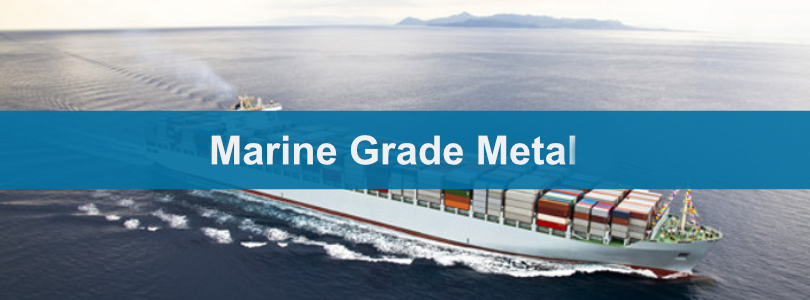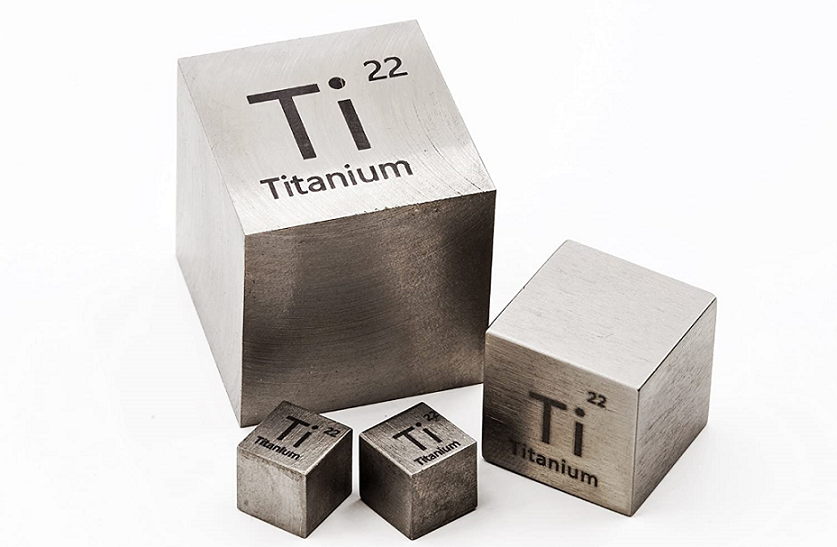8 Excellent Properties of Titanium That Make It A New Marine Metal

8 Excellent Properties of Titanium That Make It A New Marine Metal
Thanks to its excellent properties, titanium, and titanium alloys have been widely used in the industry and our everyday life. For instance, titanium is called "marine metal" due to its excellent properties such as being light in weight, high in strength, and resistant to corrosion. In this article, let's take a look at 8 excellent properties of titanium that make it a new marine metal.

Properties of Titanium
Excellent Properties of Titanium - 1. Low Density, and High Specific Strength
Its density of it is 4.51g / cm3, which is 57% of steel; its specific gravity of it is less than twice that of aluminum, and its strength is three times that of aluminum; the specific strength of it is the largest among commonly used industrial alloys.
High specific strength can promote the miniaturization and lightweight of offshore equipment, increase the speed, buoyancy, and maneuverability of submarines, and increase the depth and payload of deep submersibles.
Therefore, it is an essential key structural material for marine engineering.
Excellent Properties of Titanium - 2. Excellent Corrosion Resistance
It is currently the best material resistant to the corrosion of seawater at normal temperatures. It has good corrosion resistance even in polluted seawater, hot seawater (less than 120 ° C), sea mud, and flowing seawater.
Its excellent corrosion resistance is due to its good self-passivation. When it is damaged to some extent, the surface oxide film or passivation film can quickly repair and recover itself. That is to say, it is almost non-corrosive in the ocean. Its surface has a strong and tough oxide film, so its corrosion resistance is better than other metals.
In the design of anti-corrosion equipment, the corrosion margin in the thickness direction of the load-bearing structural components can be greatly reduced, and the construction materials are greatly saved. The anti-corrosion equipment can be designed with the same life as the main body, reducing the frequency of maintenance, greatly reducing maintenance costs, and improving equipment service capabilities. Titanium equipment does not require coating protection when used in the ocean, which simplifies the manufacturing process, shortens the construction period, and reduces manufacturing costs.
Excellent Properties of Titanium - 3. Resistant to Seawater Erosion and Cavitation
Most materials have a critical speed. Once this speed is exceeded, the surface oxide film will be washed away and the corrosion will accelerate. The corrosion resistance of titanium pipelines is much higher than that of copper and copper alloy pipes.
The critical velocity of it in seawater is greater than 27 meters per second, and various erosion-corrosion tests have shown that it is very resistant to such corrosion.
At the same time, cavitation resistance experiments show that it is one of the most resistant to cavitation damage.
Excellent Properties of Titanium - 4. High Impact Resistance
Titanium and titanium alloys have the best impact resistance, which is conducive to the ability of marine equipment to withstand the periodic impact of the waves and improve the safety and reliability of the equipment.
Excellent Properties of Titanium - 5. Non-magnetic
It is non-magnetic and is ideal for applications where electromagnetic interference must be minimized. Titanium used in submarines can greatly reduce the submarine's magnetic physics effect, thereby reducing its possibility of being discovered by antisubmarine aircraft's magnetic detector; ships made of titanium can increase concealment and avoid being attacked by magnetic mines.
In addition, it also helps improve the anti-magnetic interference ability of detection instruments and tools and ensures the accuracy of the signal.
Excellent Properties of Titanium - 6. High Sound Transmission Coefficient
It is used as the sonar shroud material for submarines and aircraft carriers, which can improve the sonar detection sensitivity and detection distance of the equipment, and improve the efficiency and safety of the equipment.
Excellent Properties of Titanium - 7. Excellent Processing Performance
It has good machining performance and can be made into practical engineering materials of various shapes and specifications, including titanium plates, titanium rods, titanium tubes, titanium wires, titanium foils, titanium forgings, etc.
Most titanium and its alloys have good weldability, and the strength coefficient of the weld can reach above 0.9. Titanium metal rarely generates delayed cracks after welding, and its equipment generally does not require post-weld heat treatment, which is beneficial to the construction of large-scale engineering equipment such as ships and marine engineering.
Excellent Properties of Titanium - 8. Green Recycling
Titanium metal products have a long service life in the marine environment. After being scrapped, they can be disassembled and returned to the furnace, which can be processed into lower-grade titanium alloy materials for use, with minimal weight loss and high recovery.
Conclusion
Thank you for reading our article and we hope it can be helpful to you. If you want to know more about the properties of titanium and other refractory metals, you can visit Advanced Refractory Metals (ARM) for more information.
Headquartered in Lake Forest, California, Advanced Refractory Metals (ARM) is a leading manufacturer & supplier of refractory metals across the world, providing customers with high-quality refractory metal products such as tungsten, molybdenum, tantalum, rhenium, titanium, and zirconium at a very competitive price.
{{item.content}}
LEVE A REPLY
{{item.children[0].content}}
{{item.content}}






